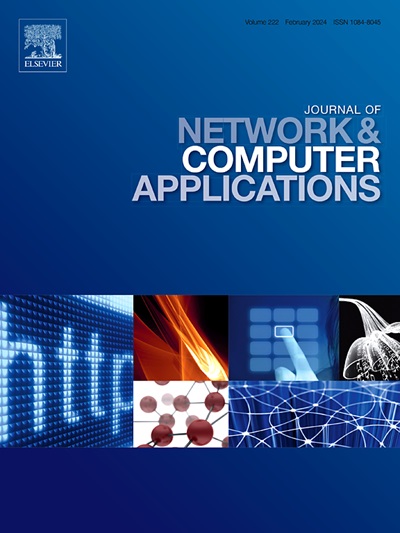A robust fault-tolerant framework for VM failure predication and efficient task scheduling in dynamic cloud environments
IF 8
2区 计算机科学
Q1 COMPUTER SCIENCE, HARDWARE & ARCHITECTURE
引用次数: 0
Abstract
Due to the dynamic nature of cloud computing, maintaining fault-tolerance is essential to ensure the reliability and performance of virtualized environments. Failures in Virtual Machines (VMs) disrupt the seamless operation of cloud-based services, making it vital to implement a strong failure prediction system. As a solution, this work proposes a Segmented Regressive Learning-based Multivariate Raindrop Optimized Lottery Scheduling (SRL-MROLS) for dynamic cloud environments. Initially, the VM failure prediction is carried out using a Segmented Regressive Q-learning algorithm, where a set of VMs is provided as input. Segmented regression analyzes the average failure rate of VMs, while a reward-based framework guides the decision-making process for accurate failure prediction. Once a failure is predicted, a relocation process is triggered, involving the migration of workloads or tasks from the failing VM to an alternate VM. Next, a Multivariate Elitism Raindrop Optimization approach is employed to identify the optimal VM for task migration. Finally, a Deadline-Aware Stochastic Prioritized Lottery Scheduling is employed for efficient allocation of tasks to the selected VMs, maintaining seamless operations even in the event of VM failures. This process significantly improves task scheduling by maximizing throughput and minimizing response time in cloud environments. Experimental results demonstrate the superior performance of SRL-MROLS across different metrics. Specifically, it achieves an average improvement of 6.4% in failure prediction accuracy, 27.4% in throughput, and a 13% reduction in response time. Additionally, it reduces failure prediction time by 15%, migration cost by 14.3%, and makespan by 15%, significantly outperforming conventional techniques.
动态云环境中虚拟机故障预测和高效任务调度的鲁棒容错框架
由于云计算的动态特性,维护容错性对于确保虚拟化环境的可靠性和性能至关重要。虚拟机(vm)中的故障会破坏基于云的服务的无缝运行,因此实现强大的故障预测系统至关重要。作为解决方案,本工作提出了一种基于分段回归学习的多元雨滴优化彩票调度(SRL-MROLS)的动态云环境。最初,使用分段回归q -学习算法进行虚拟机故障预测,其中提供一组虚拟机作为输入。分割回归分析虚拟机的平均故障率,而基于奖励的框架指导决策过程,以实现准确的故障预测。一旦预测到故障,就会触发重新定位过程,包括将工作负载或任务从故障VM迁移到备用VM。其次,采用多元精英雨滴优化方法确定任务迁移的最优虚拟机。最后,采用截止日期感知的随机优先抽签调度,将任务有效地分配给所选的虚拟机,即使在虚拟机故障的情况下也能保持无缝运行。此流程通过最大化吞吐量和最小化云环境中的响应时间来显著改进任务调度。实验结果表明,SRL-MROLS在不同指标上都具有优异的性能。具体来说,它在故障预测精度方面平均提高了6.4%,吞吐量提高了27.4%,响应时间减少了13%。此外,它将故障预测时间减少了15%,迁移成本减少了14.3%,完工时间减少了15%,显著优于传统技术。
本文章由计算机程序翻译,如有差异,请以英文原文为准。
求助全文
约1分钟内获得全文
求助全文
来源期刊

Journal of Network and Computer Applications
工程技术-计算机:跨学科应用
CiteScore
21.50
自引率
3.40%
发文量
142
审稿时长
37 days
期刊介绍:
The Journal of Network and Computer Applications welcomes research contributions, surveys, and notes in all areas relating to computer networks and applications thereof. Sample topics include new design techniques, interesting or novel applications, components or standards; computer networks with tools such as WWW; emerging standards for internet protocols; Wireless networks; Mobile Computing; emerging computing models such as cloud computing, grid computing; applications of networked systems for remote collaboration and telemedicine, etc. The journal is abstracted and indexed in Scopus, Engineering Index, Web of Science, Science Citation Index Expanded and INSPEC.
 求助内容:
求助内容: 应助结果提醒方式:
应助结果提醒方式:


